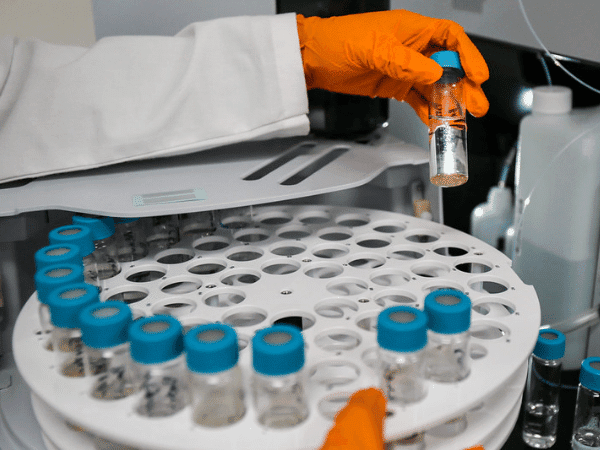Thinking about becoming a chemical engineer? There are great opportunities in the career field. In this blog we explore what chemical engineering is, how you can become a chemical engineer, what a day in the life of a chemical engineer is like, and how much you can expect to make in the industry.
What is chemical engineering?
Chemical Engineering deals with chemical processes to convert raw materials from nature and intermediate chemicals for the manufacture of valuable products. George E. Davis, an English engineer, first published a comprehensive overview of the practice of Chemical Engineering in his Handbook in 1904. Chemical engineering is broadly based engineering disciplines. There is a high demand for chemical engineers across a variety of industries including petrochemicals and energy in general, polymers, advanced materials, microelectronics, medicine, biotechnology, foods, paper, dyes, and fertilizers. Today, almost every consumer product has been improved by chemical engineering in some way.
Chemical engineers design and develop processes and products that are energy efficient, environmentally friendly, and profitable for a sustainable future. The wide breadth and depth of training of a chemical engineering graduate allows him/her to build careers not only in process industries but also in academia, national laboratories, medicine business and law. Chemical engineers have served as CEOs of such leading global businesses as 3M, DuPont, Intel, General Electric, Union Carbide, Dow Chemical, Exxon, BASF, Gulf, and Texaco.
The American Institute of Chemical Engineers (AIChE) offers an online database of the companies that hires chemical engineers in significant numbers. The Chemical Engineers in Action site shows the variety of things that chemical engineers can do.
What do chemical engineers do?
Chemical engineers typically work in manufacturing plants, research laboratories, or pilot plant facilities. They apply the principles of physics, chemistry, biology, and mathematics to solve problems that involve the production or use of chemicals, fuel, drugs, food and many other products, according to the U.S. Bureau of Labor Statistics (BLS)*.
Chemical engineers work in a variety of fields that includes petroleum refinery to turn crude oil into gasoline, jet fuel, diesel fuel, lubricating oil, solvents, and petrochemicals; at a fertilizer plant to produce ammonium nitrate, or at a personal-care product manufacturer to produce shampoo or skincare lotion. The main role of chemical engineers is to design, fault detection and diagnosis of process systems for the synthesis and processing of chemicals and materials. Chemical engineers need a complete and quantitative understanding of both the engineering and scientific principles underlying these technological processes. The essential training in material and energy balances, thermodynamics, fluid mechanics, heat and mass transfer, separations technologies, chemical reactor design, and process design helps the student with the requisite knowledge. Primarily employed by large chemical production plants to optimize process performance by maximizing productivity while minimizing costs and environmental impact.
How to become a chemical engineer?
Chemical engineering combines knowledge of chemistry, applied mathematics, engineering and economics to solve technological challenges. Specific skills required by chemical engineers are detailed understanding of mathematics, chemistry, fluid dynamics, thermodynamics, transport phenomena, economics, and optimization. Computer-aided chemical process simulation is an essential skill required for design and optimization of chemical process systems.
The Chemical Engineering program at UT Permian Basin prepares engineers with necessary skills and knowledge to enter diverse job markets locally and globally. The energy sector in West Texas is thriving and chemical engineering graduates of the program are expected to find ample job opportunities in the local energy industry. Chemical engineers use all tools of other engineering disciplines plus applied chemistry. Also, UTPB offers one of the most affordable chemical engineering programs in the state.
Why study chemical engineering?
Employment of chemical engineers is projected to grow 4 percent from 2019 to 2029, about as fast as the average for all occupations. Demand for chemical engineering services depends primarily on the demand for products of various chemical manufacturing industries as mentioned by BLS. However, the vast knowledge as obtained from chemical engineering curriculum that includes natural science, mathematics, statistics, process and product engineering, economics and optimization has resulted in diverse opportunities for the chemical engineers.
What's a day in the life of a chemical engineer like?
Chemical engineers work primarily in offices or laboratories. They may also spend time at industrial plants and refineries, where they monitor or direct plant operations or diagnose onsite problems. Nearly all chemical engineers work full time. Chemical engineering is most often found in large-scale manufacturing plants, where the goal is to maximize productivity and product quality while minimizing costs. Chemical engineers also work in aerospace, automotive, biomedical, electronic, environmental, medical, and military industries for their product development.
How much does a chemical engineer make?
Chemical engineering jobs primarily requires at least an BS degree in chemical engineering. Many employers also require a professional engineer (PE) certification as well. Advanced knowledge through MS degree is often required for promotion to management. A PhD in chemical engineering is primarily required for jobs in academics and R&D.
According to Salary.com, as of July 2014 the salary range for a newly graduated chemical engineer with a bachelor's degree is $53,493 to $82,127. The range for a mid-level engineer with a master's degree and five to 10 years of experience is $72,520 to $113,348; and the range for a senior engineer with a master's degree or doctorate and more than 15 years of experience is $97,687 to $144,016. Many experienced engineers with advanced degrees are promoted to management positions where they can earn even more.
The median annual wage for chemical engineers was $108,540 in May 2020.
Why should you choose the UT Permian Basin Chemical Engineering Program?
UT Permian Basin College of Engineering is ranked the #1 best value engineering schools in Texas, has awarded more than $150,000 in scholarships, and continually beats national and state averages pass rates for the Fundamentals of Engineering Exam.
The College of Engineering building officially opened its doors in fall 2019. The three-story building covers 105,801 square feet and cost $55 million. Inside you'll find state-of-the-art laboratories, classrooms that lend to hands-on learning, a lecture hall, study spaces, and so much more.

